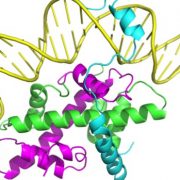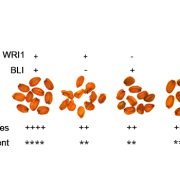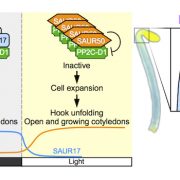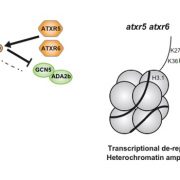Bypassing reproductive barriers in hybrid seeds
Background: Hybridization of plants with different chromosome numbers is often hindered by reproductive barriers established after fertilization. This is because the correct balance between paternal and maternal genomes is disrupted in the endosperm of the developing seed, which leads to seed unviability. For example, when extra copies of paternal genes are transmitted to the progeny via pollen, the resulting triploid seeds abort at high frequency. This phenotype, known as the “triploid block”, has been extensively studied in the model plant Arabidopsis thaliana. Notably, paternally expressed imprinted genes (PEGs) are overexpressed in abortive triploid seeds and are well-known triggers of the triploid block.
Question: Previous studies have shown that the triploid block can be bypassed using epigenetic mutants lacking DNA methylation, which is a major epigenetic mark involved in genomic imprinting in the endosperm. Therefore, in this study, we asked if the same effect could be achieved when DNA hypomethylation is chemically induced.
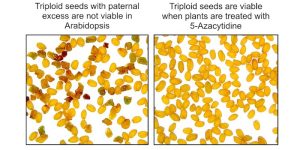
Findings: 5-Azacytidine is a potent inhibitor of DNA methylation and was used to induce hypomethylation in Arabidopsis plants that produce high levels of triploid seeds. Using a combination of methylome and transcriptome analysis, we observed that 5-Azacytidine suppresses the triploid block in a transient and dose-dependent manner. The triploid block response was lower in plants showing a stronger loss of DNA methylation, where the expression of many PEGs was also normalized to wild-type levels. Importantly, DNA methylation, upregulation of PEGs, and the triploid block response were progressively restored two generations after treatment. In addition, the same method also allowed interspecific hybrids to be produced between two Capsella species that are sexually isolated because of hybridization barriers that resemble the triploid block.
Next steps: This method might allow for the production of triploids and interspecific hybrids of high socio-economic interest for plant breeding and crop improvement.
Jonathan Huc, Katarzyna Dziasek, Kannan Pachamuthu, Tristan Woh, Claudia Köhler, Filipe Borges (2022). Bypassing reproductive barriers in hybrid seeds using chemically induced epimutagenesis. https://doi.org/10.1093/plcell/koab284


